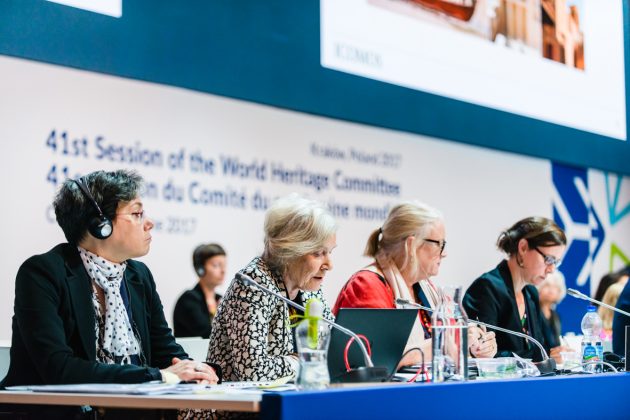
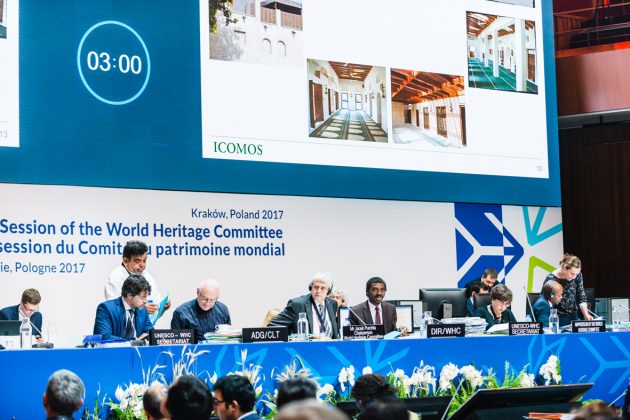

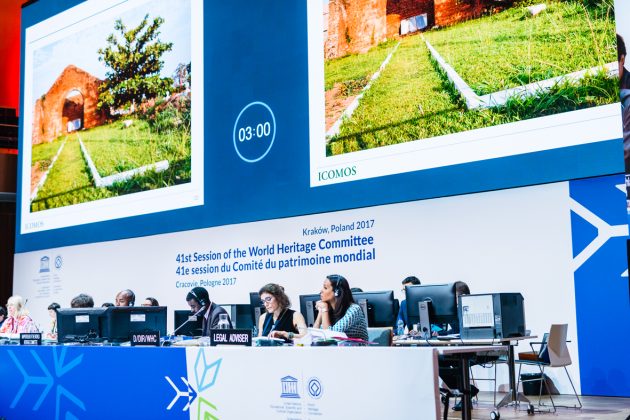








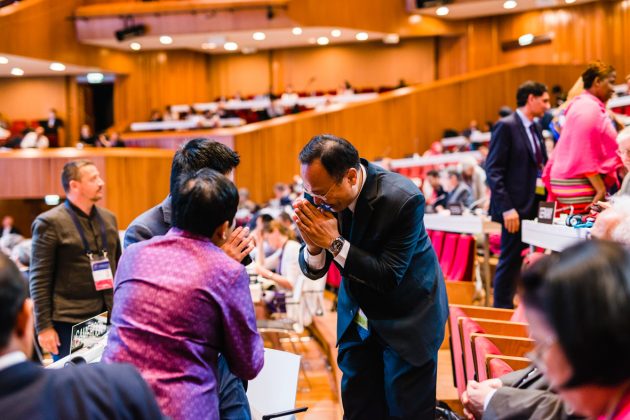








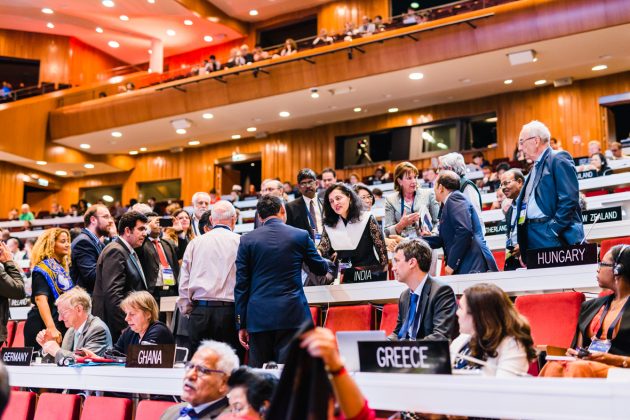


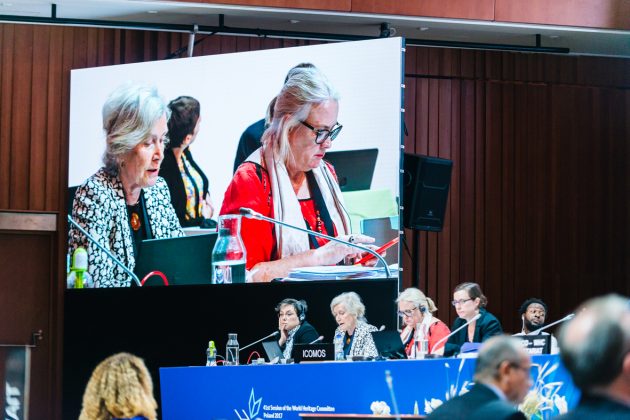












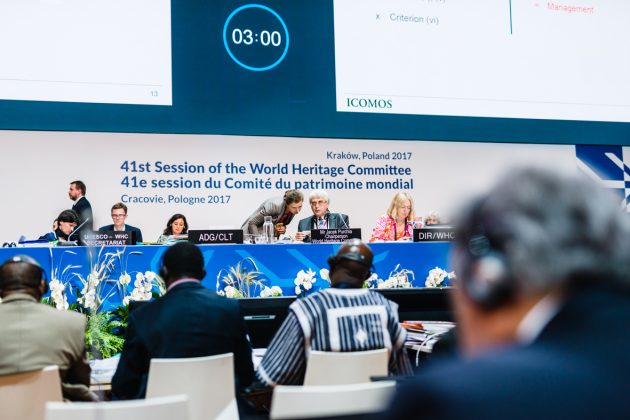



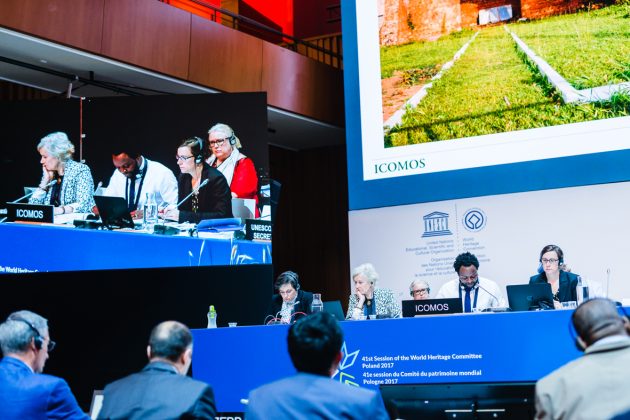

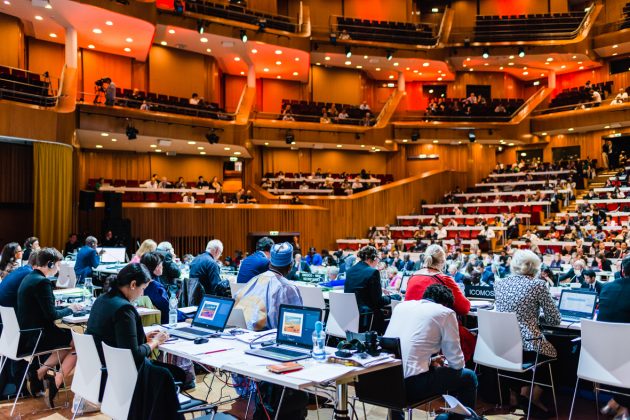

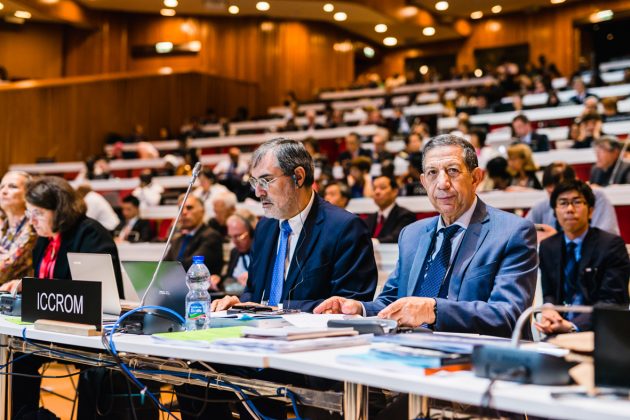
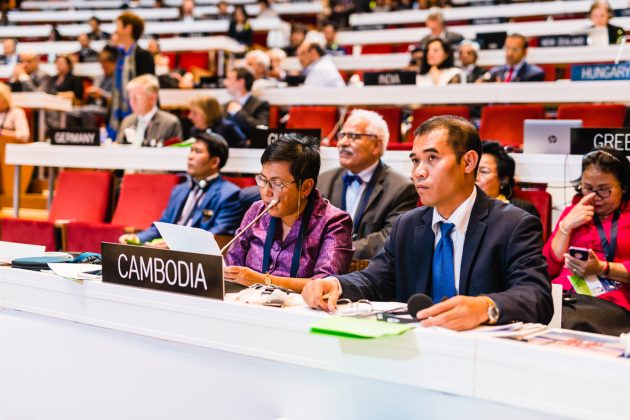




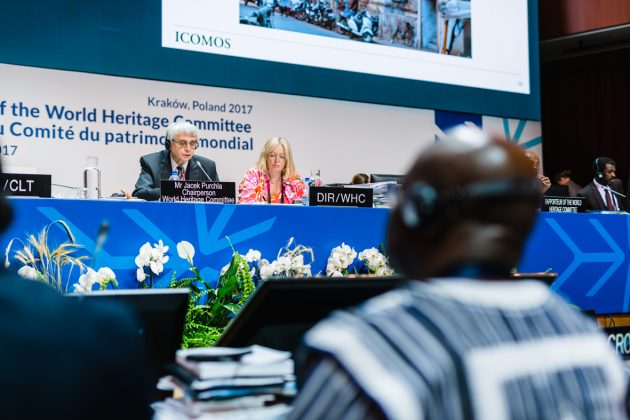















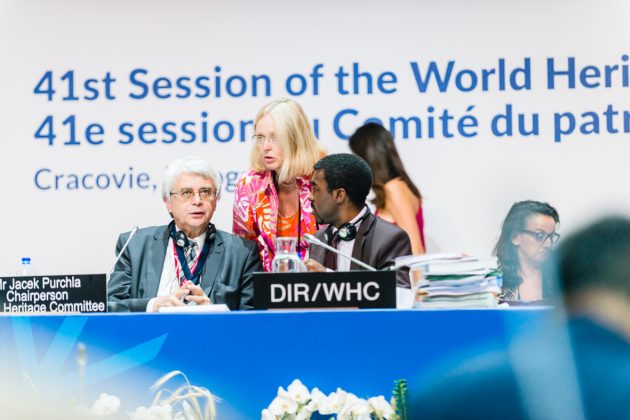
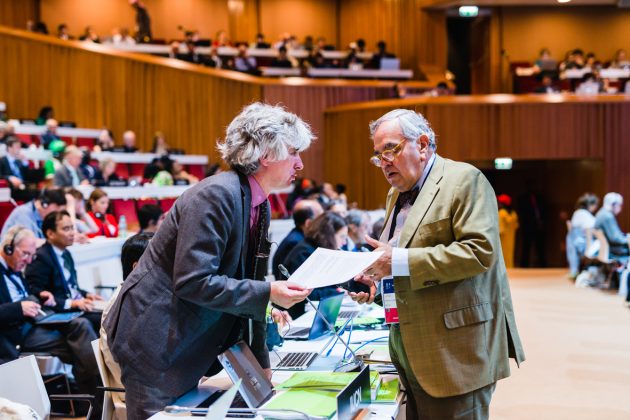
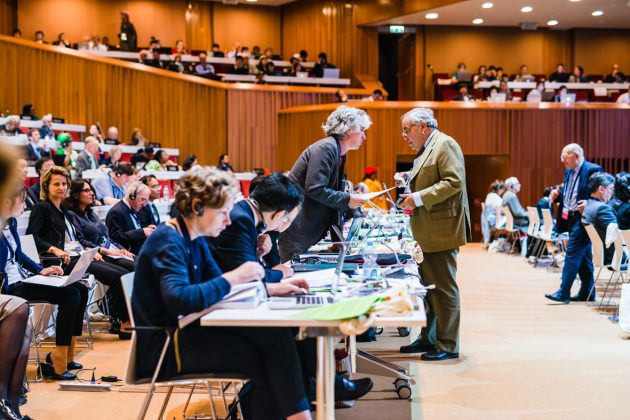
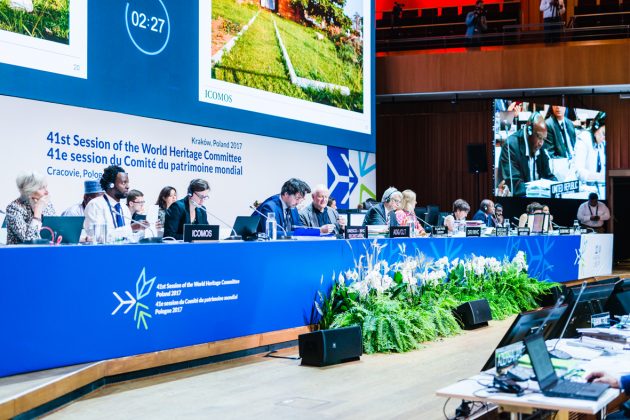


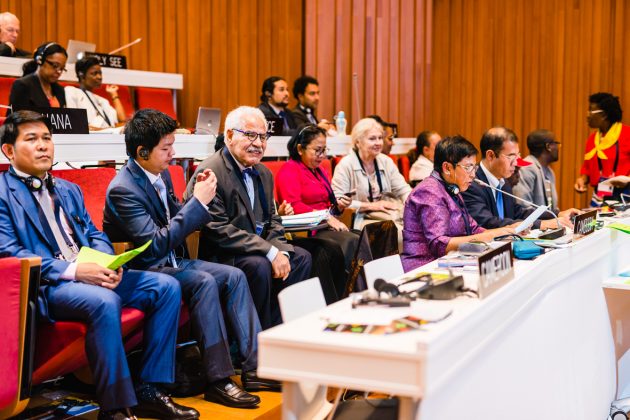



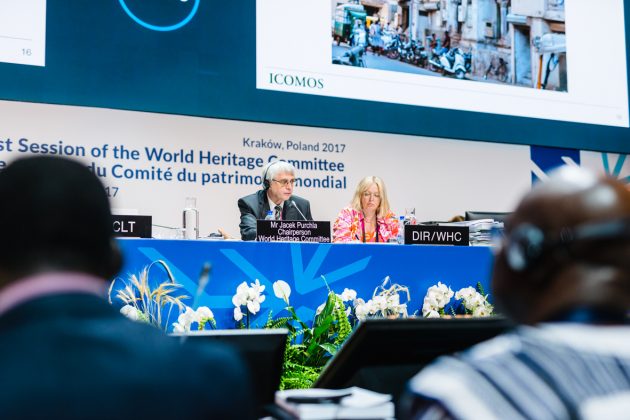


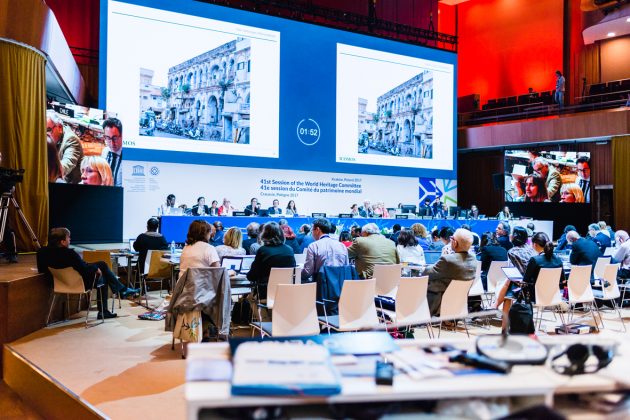


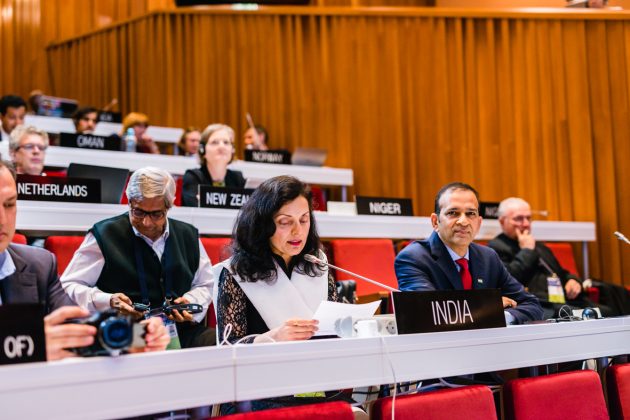




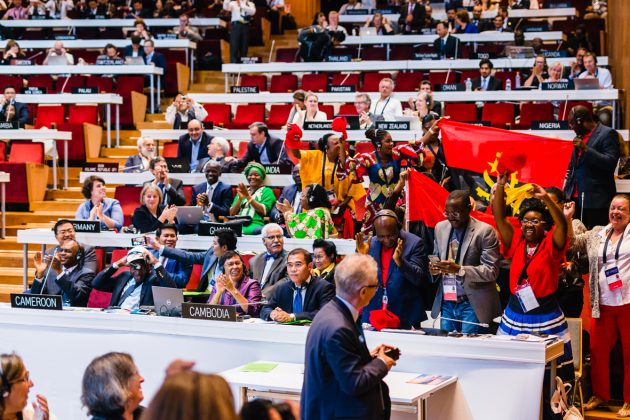




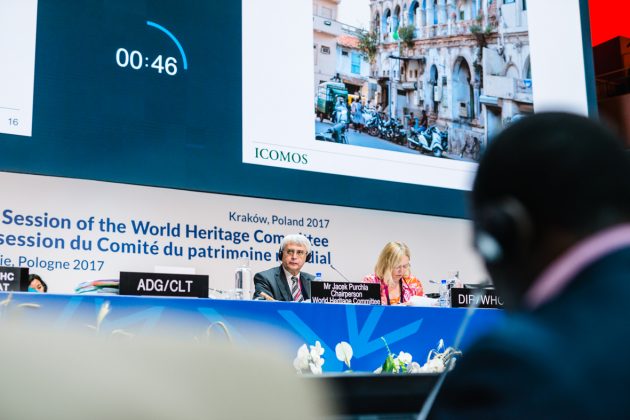






Krakow, Poland, 8 July—The World Heritage Committee this afternoon inscribed three cultural sites in Cambodia, China and India.
The sites added, in order of inscription are:
Temple Zone of Sambor Prei Kuk, Archaeological Site of Ancient Ishanapura(Cambodia)
The archaeological site of Sambor Prei Kuk, “the temple in the richness of the forest” in the Khmer language, has been identified as Ishanapura, the capital of the Chenla Empire that flourished in the late 6th and early 7th centuries CE. The vestiges of the city cover an area of 25 square kilometres and include a walled city centre as well as numerous temples, ten of which are octagonal, unique specimens of their genre in southeast Asia. Decorated sandstone elements in the site are characteristic of the pre-Angkor decorative idiom, known as the Sambor Prei Kuk Style. Some of these elements, including lintels, pediments and colonnades, are true masterpieces. The art and architecture developed here became models for other parts of the region and lay the ground for the unique Khmer style of the Angkor period.
Kulangsu: A historic international settlement (China)
Kulangsu is a tiny island located on the estuary of the Chiu-lung River, facing the city of Xiamen. With the opening of a commercial port at Xiamen in 1843, and the establishment of the island as an international settlement in 1903, this island off the southern coast of the Chinese empire suddenly became an important window for Sino-foreign exchanges. Kulangsu is an exceptional example of the cultural fusion that emerged from these exchanges, which remain legible in its urban fabric. There is a mixture of different architectural styles including Traditional Southern Fujian Style, Western Classical Revival Style and Veranda Colonial Style. The most exceptional testimony of the fusion of various stylistic influences is a new architectural movement, the Amoy Deco Style, which is a synthesis of the Modernist style of the early 20th century and Art Deco.
Historic City of Ahmadabad (India)
The walled city of Ahmadabad, founded by Sultan Ahmad Shah in the 15th century, on the eastern bank of the Sabarmati river, presents a rich architectural heritage from the sultanate period, notably the Bhadra citadel, the walls and gates of the Fort city and numerous mosques and tombs as well as important Hindu and Jain temples of later periods. The urban fabric is made up of densely-packed traditional houses (pols) in gated traditional streets (puras) with characteristic features such as bird feeders, public wells and religious institutions. The city continued to flourish as the capital of the State of Gujarat for six centuries, up to the present.
The 41st session of the World Heritage Committee (9-12 July), chaired by Jacek Purchla, founder and director of the International Cultural Centre in Kraków, will continue inscribing sites on the World Heritage List through 9 July.
Media
Lucía Iglesias Kuntz,
UNESCO,
l.iglesias@unesco.org,
+33 (0) 6 80 24 07 29 or +48 574 645 560.
Agnès Bardon,
UNESCO,
a.bardon@unesco.org,
+33 (0) 6 80 24 13 56 or +48 574 645 559


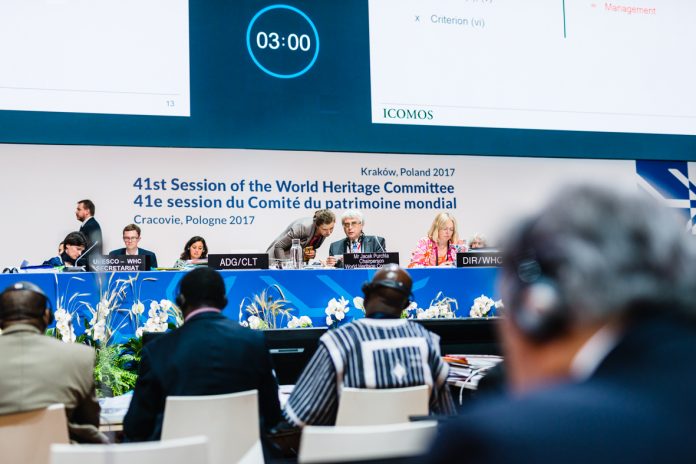
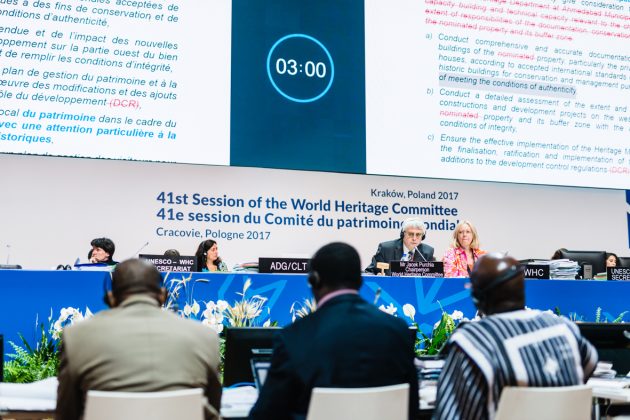

![(video) Selected Comments of Samdech Thipadei Hun Manet. at the friendly football match to celebrate the 29-December “Peace Day in Cambodia” [Unofficial Translations]](https://pressocm.gov.kh/wp-content/uploads/2025/01/SP-2024-12-29-17-48-09-0-324x235.jpg)
![(video) Selected Comments of Samdech Thipadei Hun Manet. at the presenting of certificates and diplomas to the students and fellows of the University of Human Resources [Unofficial Translations]](https://pressocm.gov.kh/wp-content/uploads/2025/01/SP_2024-12-26_09-41-19-100x70.jpg)
![(video) Selected Comments of Samdech Thipadei Hun Manet. the meeting with top students’ graduation of the secondary school exams and the level-3 technical and vocational exams [Unofficial Translations]](https://pressocm.gov.kh/wp-content/uploads/2025/01/SP-2024-12-23-09-23-08-5-100x70.jpg)
![(video) Selected Comments of Samdech Thipadei Hun Manet. at the declaration of Kampong Cham as the first province to have completed systematic land surveying and land titles distribution [Unofficial Translation]](https://pressocm.gov.kh/wp-content/uploads/2025/01/SP-2024-12-21-10-32-13-2-100x70.jpg)
